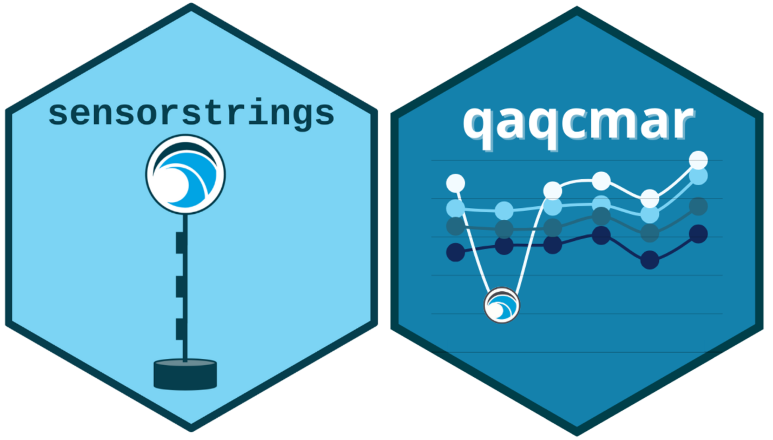
Data Governance
Welcome to the Centre for Marine Applied Research’s (CMAR) Data Governance Website. This website provides technical details on the automated Quality Control tests applied to Water Quality data collected through CMAR’s Coastal Monitoring Program.
To return to CMAR’s main Coastal Monitoring Program website page, click here.
Coastal Monitoring Program
CMAR’s Coastal Monitoring Program is an ongoing data collection effort to:
- Inform development of coastal industry
- Guide government policy and management decisions
- Encourage environmental stewardship
- Ensure preparedness for climate change
Water Quality Data
Through the Water Quality Branch of the Program, CMAR collects temperature, dissolved oxygen, salinity, and depth data using sensors deployed on stationary moorings. Click here for more information on data collection, sensor calibration and validation, and data access.
Click on a variable in the menu bar above for more detailed information about the variable, CMAR measurements, and quality control thresholds.
Quality Control
Automated Quality Control tests have been applied to the data to identify outlying and unexpected observations. Click here to learn more about the Quality Control tests applied to the Water Quality data.
Data Products
Coastal Monitoring Program Water Quality Data can be accessed from several platforms. Summary reports are available on the CMAR Website. Full datasets can be downloaded from the Nova Scotia Open Data Portal and the CIOOS Atlantic.
The reports and datasets can also be accessed through the CMAR Station Locations Map.
Code
CMAR has developed and maintains a suite of packages in R (free, open-source statistical software) to facilitate processing Coastal Monitoring Program data. Water Quality data was compiled using the sensorstrings package. Quality Control flags were applied using the qaqcmar package. Both packages can be viewed or installed from GitHub.
Note
The CMAR Data Governance Website is under development. Content is being added and revised.